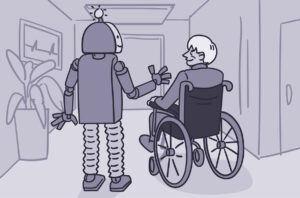- Nursing diagnoses
- Ineffective health management related to lack of knowledge of pathology, complications, and management of hypertension
- Anxiety related to complexity of management regimen
- Sexual dysfunction related to side effects of antihypertensive medication
- Risk for decreased cardiac tissue perfusion
- Risk for ineffective cerebral tissue perfusion
- Risk for ineffective renal perfusion
- Potential complication: stroke, MI
- Planning
- Patient will
- Achieve and maintain the goal BP
- Follow the therapeutic plan
- Including appointments with the HCP
- Experience minimal side effects of therapy
- Manage and cope with this condition.
- Patient will
- Nursing implementation
- Health Promotion
- Primary prevention via lifestyle modification
- Individual patient evaluation and education
- Screening programs
- Cardiovascular risk factor modification
- Ambulatory Care
- Evaluate therapeutic effectiveness
- Detect and report adverse effects
- Assess and enhance compliance
- Patient and caregiver teaching
- Home BP monitoring
- Patient teaching is critical for accuracy
- Proper equipment
- Proper procedure
- Frequency
- Accurate recording and reporting
- Target BP
- Patient teaching is critical for accuracy
- Reasons for poor adherence to treatment plan are complex
- Inadequate teaching
- Low health literacy
- Unpleasant side effects of drugs
- Return to normal BP while on drugs
- High cost of drugs
- Lack of insurance
- Measures to enhance compliance
- Individualize plan
- Active patient participation
- Select affordable drugs
- Involve caregivers
- Combination drugs
- Patient teaching
- Health Promotion
- Nursing evaluation
- Patient will:
- Achieve and maintain goal BP
- Understand, accept, and implement treatment plan
- Report minimal side effects of therapy
- Patient will:

Flu and People with Diabetes
r Everyone MAR. 20, 2024 PREVENTION AND CONTROL OF SEASONAL INFLUENZA WITH VACCINES: RECOMMENDATIONS OF THE ADVISORY COMMITTEE ON IMMUNIZATION PRACTICES — UNITED STATES, 2025-2026



